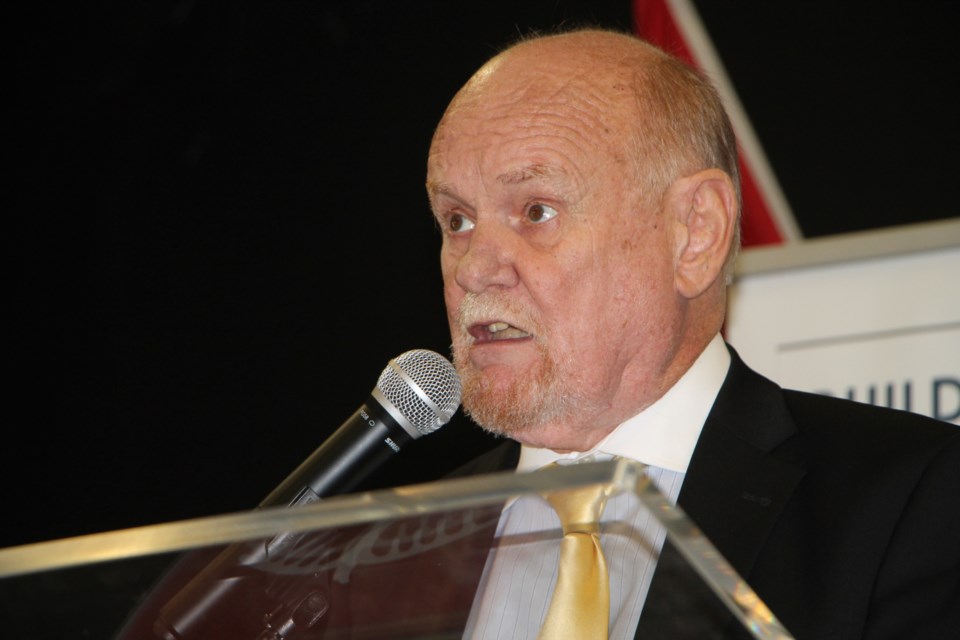As striking Sault College faculty members picketed outside the postsecondary school Thursday, both the OPSEU-represented faculty and college administration seem to be at an impasse.
Approximately 12,000 Ontario community college professors, instructors, counsellors, and librarians at Ontario’s 24 community colleges walked off the job Monday, calling for a 50:50 ratio in the number of full-time faculty to the number of faculty members on contract, more job security for part-time faculty and more academic control for faculty over how education is delivered.
The College Employer Council (the bargaining agent for Ontario’s 24 community colleges in reaching collective agreements with unionized staff) has said OPSEU’s demands are too costly.
“The Colleges offered faculty a 7.75 per cent salary increase over four years (raising new full-time faculty maximum pay to $115,378) but OPSEU has asked for nine per cent over three years,” the Council has stated.
“At this point the status is that the mediator will call the two parties together for a meeting if he feels there is opportunity for success (a successful resolution of the labour dispute),” said Ron Common, Sault College president, speaking to SooToday after the open portion of Thursday’s Sault College board of governors meeting.
“I think he or she will reach out to either side and see if there’s a point in bringing the parties back together, it’s in their hands and they’ll decide if there’s a point to it,” said Rick Webb, the college’s human resources director.
“We continue to wish the union would let their members vote on the contract we’ve offered and that’s certainly the quickest way for the strike to end,” Common said.
As reported earlier by SooToday, OPSEU’s Frank Turco said the number of full-time faculty has dropped from approximately 300 down to 117 over the past 35 years.
Common dismissed that figure.
“I do know that since 1998, which is as far back as my records go, the most full-time professors we had was 166. That I know.”
Turco criticized money spent on such things as Sault College foreign missions to recruit international students as not economically viable.
“One (international) student alone covers the cost of the entire international recruiting mission of two Sault College officials,” Common shot back.
There are approximately 160 international students currently at Sault College.
“That’s $2.5 million that we wouldn’t otherwise have in tuition…it’s economically viable.”
At Sault College, the strike is affecting approximately 4,000 full-time and part-time students in the classrooms, as well as those involved in learning skilled trades, Common said.
While the strike lingers, Common said “we’ve provided opportunities for peer tutoring for the students, students have been set up in study groups as well, but a large number of students have gone home for the week. I’ve noticed the actual presence of the students is significantly down.”
“We’re trying to get daily activities for the students that are here (such as students living in residence)…trying to do some fun activities to keep them occupied,” Webb said.
The strike did not come up for discussion at Thursday’s board meeting, however the board was briefed with a report on the success of the college’s institutional partnership with Samuel Jackman Prescod Polytechnic (SJPP) in Barbados.
The main goal of the program was to help in developing a renewable energy and energy conservation program (involving solar panels and wind turbines) at the Caribbean school.
The three-year project officially wrapped up in September.
Sault College had earlier completed a labour market study to determine the need for renewable energy workers in Barbados.
18 SJPP faculty members received renewable energy training from Sault College faculty and have since been delivering renewable energy courses in Barbados.
A Sault College Public Relations and Event Management (PEM) student designed a social media campaign for SJPP, and students from Sault College’s Digital Film Production program travelled to the Caribbean island to produce promotional videos for the SJPP renewable energy courses, collecting footage for the videos in Barbados and completing the post production work at Sault College.
Over 90 students have taken part in the renewable energy courses developed with Sault College help at SJPP, which plans to continue teaching with course material developed in the project.
The program’s success led to two other similar “teachers training teachers” international projects for Sault College, both in Tanzania.
“It was a springboard for us internationally,” said Colin Kirkwood, Sault College vice president, academics and research, speaking to the board.
Board of Governors member Matthew Shoemaker asked about the possibility of Barbados students coming to Sault College to upgrade their renewable energy skills.
“One of the things we left with was a plan, to recruit students to come here, and what we’ve done is create a scholarship specifically for the students at Samuel Jackman to come to Sault College,” Kirkwood answered.
“The scholarship’s been made available and we have identified a number of programs that map against the programs in Barbados, and so the idea is the students could complete one year of study, in motive power for example, in Barbados, and be eligible to come into year two here,” Kirkwood said.
